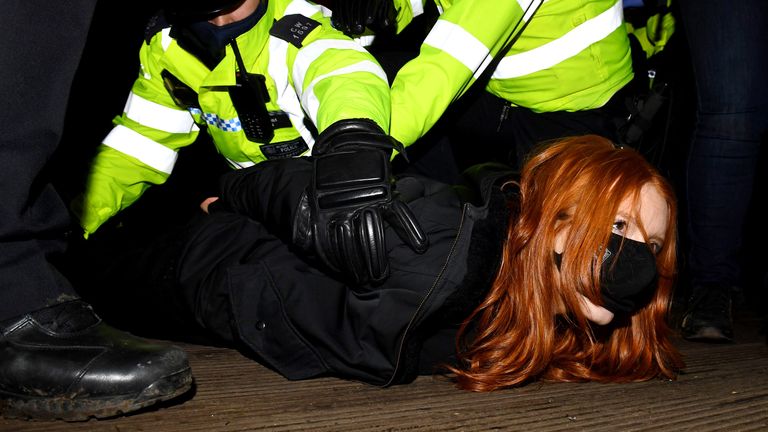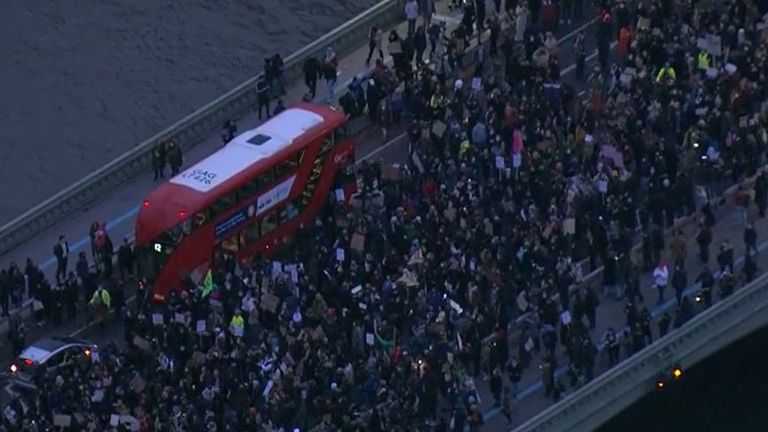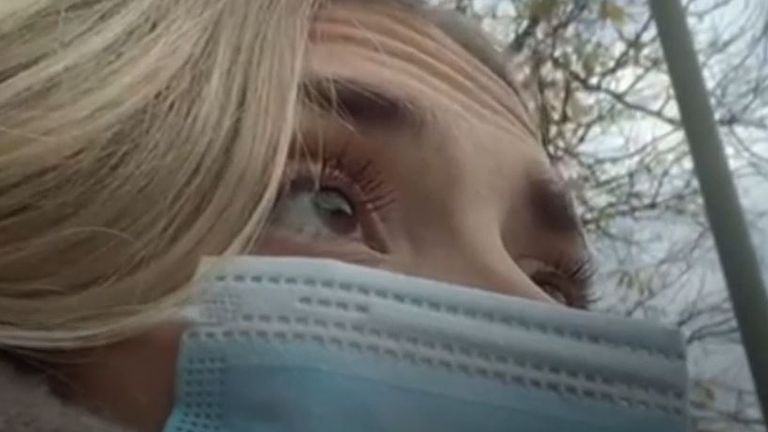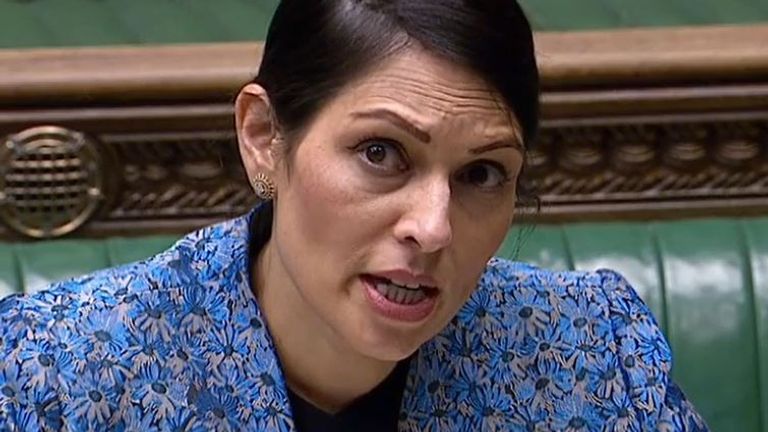Labour and the Conservatives are heading for a fierce showdown on crime after Sir Keir Starmer ordered his MPs to vote against a flagship piece of government legislation.
MPs are voting on the Police, Crime, Sentencing and Courts Bill at the end of a two-day Commons debate dominated by clashes about protection for women and curbs on demonstrations.
The wide-ranging crime crackdown, in a massive Bill that runs to 296 pages and 176 clauses, enacts a package of law and order pledges in the Conservatives’ 2019 general election manifesto.
But the stakes in the battle between the Tories and Labour have been dramatically raised by the killing of Sarah Everard and the political row over the policing of a vigil in her memory on Saturday.
After originally planning to abstain in the vote on the Bill’s second reading, Labour will now vote against, in a move condemned as “shocking” by senior Conservatives.
Earlier, during day one of the debate on the Bill, hundreds of protestors caused disruption in Parliament Square, on Westminster Bridge and outside the Downing Street gates on Whitehall.
At the same time, Boris Johnson held a meeting of the Government’s Criminal Justice Taskforce and later announced a five-point plan that he said would provide further assurance for women and girls.
Immediate steps promised by the Prime Minister include:
• Doubling funding of the Safer Streets fund to £45 million, with more money for better lighting and CCTV;
• Expanding pilots of a “Project Vigilant” scheme, with undercover police patrolling bars and clubs at night;
• Policing Minister Kit Malthouse holding a summit with police and venue owners on protecting women post-lockdown;
• Consulting on a new Victims Law; and
• £11 million for more Sexual Violence Advisers to support victims through the criminal justice process.
But ahead of day two of the debate, Labour published analysis of crime figures suggesting women made up more than half the victims of all violent crime in the last three years.
The party claims figures from the Office of National Statistics show that in 2019-20 56% of victims of violent crime were women and that they made up more than four fifths of sexual offences and rapes reported to police.
“These figures underline that violence is not a rare occurrence but the sad reality for too many women and girls across the country,” said Labour’s Shadow Safeguarding Minister Jess Phillips.
“We need a step change not just in the criminal justice system but throughout society – and that needs real government backing.
“The Tories need to stop wasting time on gimmicks and get serious about tackling the epidemic of violence women and girls are facing.
“This legislation is the equivalent of a get out of jail free card – it should be called the Abusers Charter.”
On day one of the debate, besides complaints from Labour about a lack of measures in the Bill to protect women, Home Secretary Priti Patel faced criticism about curbs on protests in the legislation.
Former prime minister Theresa May told MPs: “I would urge the Government to consider carefully the need to walk a fine line between being popular and populist. Our freedoms depend on it.”
But defending the proposed curbs, Ms Patel said: “In recent years we’ve seen significant change in protest tactics, with protesters exploiting gaps in the law which have led to disproportionate amounts of disruption.
“Last year we saw XR (Extinction Rebellion) block the passage of an ambulance on emergency calls, gluing themselves to trains during rush hour, blocking airport runways, preventing hundreds of hard working people from going to work.”
In the House of Lords, meanwhile, peers inflicted more defeats on the government on its Domestic Abuse Bill, including backing a move to flag, track and target repeat perpetrators and stalkers.
Voting was 327 to 232, a majority of 95, on a measure which would see culprits put on the violent and sex offender register and subjected to monitoring and management.
During a highly emotional debate, Baroness Bertin, who was David Cameron’s press secretary in Downing Street, told peers her cousin had been murdered at the age of 18 by a stalker who had been harassing young girls.
With her voice trembling at times, she said: “My cousin died many years ago now but the sorrow we still feel is as acute as on the day she was murdered. No family should ever feel this.”
Referring to her cousin’s killer, she said: “His behaviour and that of so many potential murderers and serial abusers was simply allowed to carry on unchecked and unstopped. This must end.”
And Paralympic gold medal winner Baroness Grey-Thompson said she had experienced uncomfortable situations where she had received “unwanted attention, been bombarded and had threatening behaviour”.
She said: “I have been incredibly lucky that I have had people who have helped and supported me through this, but even with that I wasn’t able to sleep, I couldn’t eat, I was scared to go out, I was constantly looking over my shoulder.”





